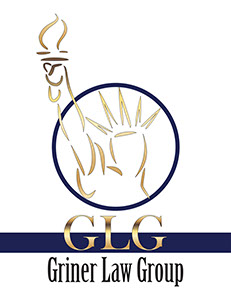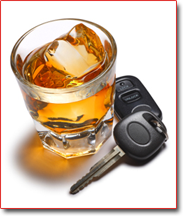
Telephone: (574) 255-1776
Text: (574) 400-5292 (law2)
Fax: (574) 255-2341
Email: GaryGriner@GrinerLaw.com


In every case, we will treat our clients with respect and work hard to achieve the best results

Indiana OWI/DUI

Operating While Intoxicated
Arrested for OWI/DUI? Need to find the best Indiana OWI/DUI lawyer? We have represented many clients in the courts of Indiana. We want to be your Indiana OWI/DUI lawyer. Need help? Read through our website, watch the videos and call us today at (574) 255-1776. In every case, we will treat our clients with respect and work hard to achieve the best result.
What Documentation Should I Gather After An Operating While Intoxicated Arrest?
As soon as possible after you are arrested for Operating While Intoxicated (OWI), we recommend that you document some things. Specifically, you should sit down and write a letter. It may be anywhere from less than a page to ten or fifteen pages long. You should write down everything you remember about the day of your arrest starting with what time you woke up that morning, what you had for breakfast, whether you went to work or did other activities during the early part of the day, what you had for lunch, etc. The more detailed you can be, the better. For example, if you can recall specific times, the exact foods and drinks you consumed, quantities, this will be better than vague descriptions.
Even more important, if anyone was with you on the day of your arrest, either at the time of your arrest or even in the several hours before your arrest, you should contact these individuals, let them know what happened, and ask them to write down a similar letter. We understand that this is embarrassing and maybe you do not want to talk to anyone about the case - but this information could make a difference. You will also need to get all of their contact information including full name, address, date of birth, and telephone. You will need to take these written letters to your lawyer.
In most cases, these letters will not be particularly helpful. However, sometimes they can be useful to your lawyer in plea negotiations. For example, if you were at a bar with several people and those people will write and ultimately will agree to testify in court that you only had say, two beers that will call into question much of what the police officer might say about how you were highly intoxicated. Also, it is not unusual for people to be arrested for Operating While Intoxicated (OWI) after suffering some tragedy or emotional difficulty such as a death in the family, job loss, or a relationship breakup. Sometimes, prosecutors will be sensitive to these matters and may be slightly more lenient in plea bargaining.
In the event that your vehicle was involved in an accident, it will also be important to take photographs of your vehicle and the crash scene.
Indiana Operating While Intoxicated - Frequently Asked Questions:
Q: What are the Indiana Operating While Intoxicated Laws?
A: The Indiana statutes describe four basic offenses for operating while intoxicated. The first is called operating while intoxicated (OWI). It says that if you operate a vehicle while under the influence of drugs or alcohol such that your faculties are impaired, you commit a class C misdemeanor to a class A misdemeanor. Secondly, operating while intoxicated (OWI) is elevated from a class C misdemeanor to a class A misdemeanor if you "endanger" someone. Third is operating a vehicle with a blood or breath alcohol level (sometimes called BAC or ACE) of .08% or higher, a class C misdemeanor. However, if your level is .15% or higher, the charges is raised to a class A misdemeanor. The punishment for a class C misdemeanor cannot exceed 60 days of incarceration and fines up to $500. The punishment for a class A misdemeanor cannot exceed 60 days of incarceration and fines of $500. The punishment for a class A misdemeanor may be up to 365 days of incarceration and fines of $5,000. Operating while intoxicated can be a felony if you have a child in the car, have a prior conviction, or cause serious injury or death.
Q: When he Arrested me, the Police Officer Took my License. What Happens to it?
A: The police are supposed to take your license and give you a receipt for it. A police officer does not have the power to suspend your license. You are not suspended until a court or the BMV suspends your license. Of course, in most cases, within days after your arrest, your license will be suspended. The initial suspension is called an administrative suspension and it results from either failing the breath test/blood test or from refusing to take the test. Later, if you are convicted, there will be a different license suspension. If you are found not guilty, the administrative suspension may still be in effect - there are specific procedures for challenging the administrative suspension. Indiana law says that if you are convicted for a first time offense, your license will be suspended for at least 90 days and maybe as long as 2 years. The license suspensions are longer if you've previously been convicted. In many cases, it is possible to obtain a conditional license, which will allow you to drive for work purposes.
Q: Is there any way to beat an operating while intoxicated charge?
A: The answer depends on the specifics of your case. Ultimately for you to be convicted, the prosecutor must prove to a jury beyond a reasonable doubt that you violated a specific operating while intoxicated statute.
Some ways to beat the charge are:
1. The prosecutor’s evidence of intoxication is insufficient.
The evidence usually consists of the police officer’s testimony about your breath test result, but machines can be wrong. If you refused the breath test, the evidence against you is limited to the officer’s observations made during field sobriety tests. In many cases, this kind of evidence is not enough to find you guilty. Frequently officers fail to properly administer the tests. This creates the possibility of excluding the test from evidence – or at least can create some significant doubts. If you refuse all tests, the evidence against you is limited to what the officer can say about your appearance and demeanor, such as you smelled like alcohol and had red eyes. Frequently, it just does not add up to proof beyond a reasonable doubt. The prosecutor has to prove that you were intoxicated at the time that you were driving. If a significant amount of time passes prior to taking the breath test – your alcohol level may be much different. Breath tests and even many blood tests can be inaccurate.
2. The prosecutor’s evidence that you operated a vehicle is insufficient.
In some cases – especially when there was a crash and police arrive after the fact, they “assume” that you were driving but the law says the prosecutor has to prove it beyond a reasonable doubt. Very specific facts will be important – who is the registered owner of the vehicle, how much time passed before the police arrived, where were the keys, etc.
3. The evidence against you can be excluded or suppressed at the trial.
Illegal traffic stops are common but a driver cannot be validly pulled over unless the officer has reasonable suspicion of criminal activity that he can articulate or he witnessed a traffic violation. Anonymous tips alone cannot be the basis of a traffic stop. Blood test results can be excluded from evidence if you did not consent to the test and the police did not have a warrant. Breath test machine malfunctions are uncommon but they do happen. Some lawyers do not know how to properly evaluate this and many simply will not take the time to consider it. Improper administration of the breath test is another basis for excluding evidence. The law requires officers to follow very specific procedures and when they mess up, the test results are not admissible in court. If the police have you “in custody,” your statements cannot be used against you with proper Miranda warnings.
When the police improperly administer field sobriety tests, those tests are not scientifically reliable. In some states, unless the tests are properly done, the results are inadmissible. Indiana law on this topic is not yet entirely clear.








